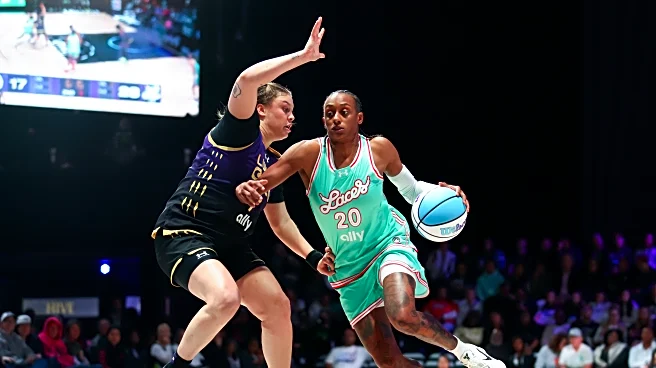What's Happening?
The film 'Brokeback Mountain,' which turns 20 years old this year, continues to be a significant cultural touchstone. Originally based on Annie Proulx's short story, the film explores themes of homophobia and the complexities of love and heartbreak through the characters Jack Twist, played by Jake Gyllenhaal, and Ennis, portrayed by Heath Ledger. The film was initially met with skepticism due to the lack of openly queer individuals involved in its production. However, it has been recognized as a masterpiece for its portrayal of internal tension and emotional depth. The film's anniversary has reignited discussions about its impact and the representation of queer stories in mainstream media.
Why It's Important?
The anniversary of 'Brokeback Mountain' highlights ongoing conversations about representation in film and the importance of accurately portraying queer experiences. The film's success despite initial doubts underscores the potential for mainstream media to address complex social issues like homophobia. It also reflects changes in societal attitudes towards LGBTQ+ narratives, as contemporary audiences may view the film differently than when it was first released. The discussions around the film's portrayal of gay relationships and its impact on younger queer audiences reveal shifts in cultural expectations and the demand for authenticity in storytelling.
What's Next?
As 'Brokeback Mountain' reaches its 20th anniversary, there may be renewed interest in revisiting the film or adapting similar stories with more inclusive representation. The film industry could see increased pressure to involve queer voices in the creation of LGBTQ+ narratives, ensuring authenticity and resonance with modern audiences. Additionally, the anniversary could inspire retrospectives or discussions in media outlets, examining the film's legacy and its influence on subsequent queer cinema.
Beyond the Headlines
The film's anniversary prompts deeper reflection on the ethical considerations of storytelling, particularly regarding who has the authority to tell certain stories. It raises questions about the role of identity in filmmaking and the importance of diverse perspectives in creating narratives that resonate with marginalized communities. The ongoing dialogue about 'Brokeback Mountain' may contribute to broader cultural shifts towards inclusivity and representation in the arts.









